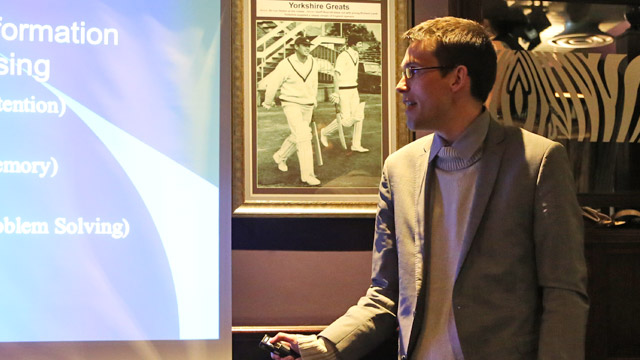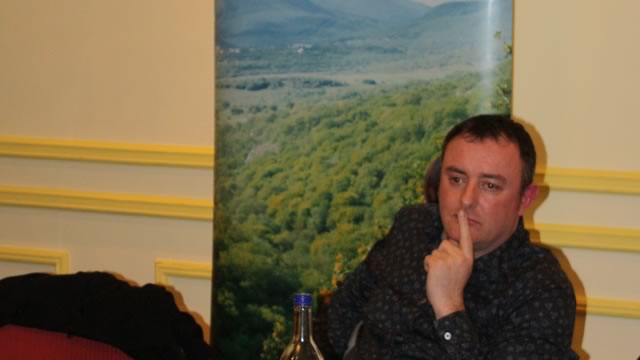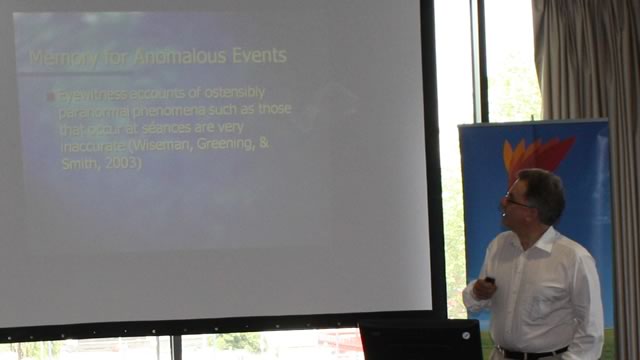Related to How Do People Lose Religion?
-

Widening the View: Looking at the limits of Human Perception
After the success of his SiTP talk, the award-winning "You know less than you think", Paul Hopwood is back for the sequel! Based around his Cognitive Psychology studies, the first talk focussed on the different stages of information processing in the human brain. By looking at research into the brain's ability to acquire, store, retrieve and use information; the talk highlighted that humans have a tendency to severely overestimate their ability to perform these tasks.
-

The New Visibility of Atheism in Europe
Dr Stuart McAnulla (University of Leeds, POLIS) delivers a talk about the political aspects of the 'New Atheist' movement.
-

Brainwashed! A Cult Survivor's Tale
Arthur Chappell describes how he was seduced into an Eastern meditation cult in the early 1980's, despite being an ex-Catholic atheist. The talk takes you step by step through the process of conversion, so that you can see step by step how the cult world wraps itself around you, cutting off exits, making rational thinking and doubt difficult and later near impossible.
-

Perspective: Humanism
Recorded as part of the Leeds Perspective Citywide events in 2011, Tim Stephenson presents an introduction to Humanism.
-

Psychology of Anomalous Experiences
Ever since records began, in every known society, a substantial proportion of the population has reported unusual experiences many of which we would today label as "paranormal". Opinion polls show that the majority of the general public accepts that paranormal phenomena do occur. Such widespread experience of and belief in the paranormal can only mean one of two things. Either the paranormal is real, in which case this should be accepted by the wider scientific community which currently rejects such claims. Or else belief in and experience of ostensibly paranormal phenomena can be fully explained in terms of psychological factors.
-

Why do People do Weird Things?
Human behaviour often appears to be maladaptive, pointless, ineffective for its expressed purpose, and even completely absurd. In this talk Michael Heap will examine, with the aid of demonstrations and videos, some examples of odd behaviour that is based on unusual and paranormal ideas and beliefs. These will include healing practices, dowsing, hypnosis, and communication with "the spirit world."
